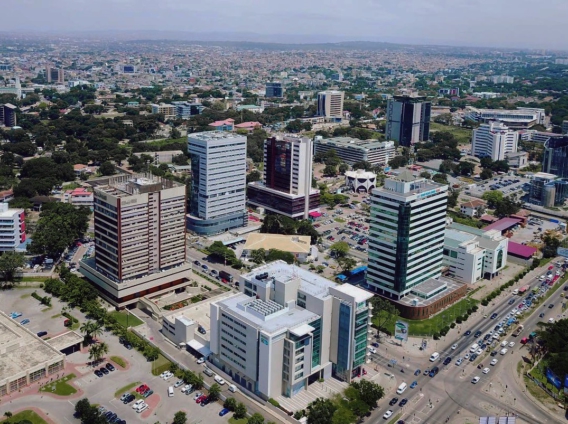Among five sub-Saharan African countries that Standard Bank, parent company of Stanbic Bank Ghana undertook a Consumer Insight Report, Ghana was ranked 4th with the highest prices of consumer goods.
The nation surveyed were South Africa, Nigeria, Ethiopia, Kenya and Ghana.
The country placed 4th ahead of Kenya, which was 5th in most of the consumer goods categories.
When it came to the Food Basket group, the two kilogrammes of rice sold in Ghana was the second most expensive, ahead of Kenya.
But one loaf of bread is more expensive in the country than the other four countries.
However, for cooking oil, Nigeria registered the most expensive price, ahead of Ghana.
The same trend was seen within the Home and Personal Care categories. Ghana again placed 4th in most of the items sold within the group.
Examples are toothpaste, body lotion and laundry bar soap.
Whilst, body lotion was expensive in the country than the rest of the four other Sub Saharan African (SSA) nations captured in the report, the price of roll-on in the country was less expensive than in Nigeria and Kenya, but more expensive than in South Africa and Kenya.
“Ghana is the second most expensive market with Nivea body lotion distorting the basket. Both Nigeria and Ghana sold the 400ml bottle of body lotion at least 28% higher than other markets”, the report emphasised.
In all, South African basket price is on average 12% cheaper than all the markets visited by the Standard Bank team.
Standard Bank said “Ethiopia, Ghana, Kenya, Nigeria and South Africa were our focus countries. We believe these continue to represent the biggest consumer markets in SSA and represent scale and prospects for potential investors. These “Frontier Markets” represent 56% of households and 71% of food sales across SSA.”
Importantly, the depreciation of the local currencies of the respective countries also contributed to the change in prices of the consumer goods.
The report revealed that consumer baskets are still dominated by staples rather than groceries, home and personal care products. These prices also impact in the measurement of the Consumer Price Inflation.
Among the five nations, Ghana’s December 2020 inflation rate was ranked third, higher than Nigeria and Ethiopia.
December 2020 inflation
Inflation ended the year 2020 by going up in the month of December 2020 to 10.4%, a marginal increase over that of November 2020, data from the Ghana Statistical Service revealed.
This means prices of some goods and services went up during the month of the Christmas festivity, largely due to household and business spending.
Latest Stories
-
Kounde strike wins Copa del Rey final for Barcelona
33 minutes -
Is NPP crying more than the bereaved in the Chief Justice saga?
2 hours -
“Elements within NPP worked against me for supporting ‘Ken must go'” – Cynthia Morrison
3 hours -
IMF Boss commends finance minister for strong commitment to economic reform
3 hours -
Cynthia Morrison advises Ghanaian women to diversify their skills to build wealth
3 hours -
UK deports 43 immigration offenders to Ghana and Nigeria
4 hours -
Piwak Natural Health urges Akosombo victims to rebuild with new donation
4 hours -
Ghana’s Para athlete Gilbert Ampiah wins bronze at Marrakech Grand Prix 2025
4 hours -
6 dead in Adansi Dompoase crash involving VIP bus and sprinter
4 hours -
Saturday’s heavy rainstorm caused outages within our network – ECG
5 hours -
Police arrest 3 over gold robbery at Wassa Afransie
6 hours -
Against all odds: Zinabu Issah clinches silver for Ghana at WPA Marrakech 2025
7 hours -
ASFC 2025: Ghana girls complete host-and-win mission after beating Uganda
7 hours -
NPC President congratulates new GOC Executives
7 hours -
Stonebwoy displays maturity amid Aisha Modi’s attacks: a masterclass in brand integrity and respect
7 hours

